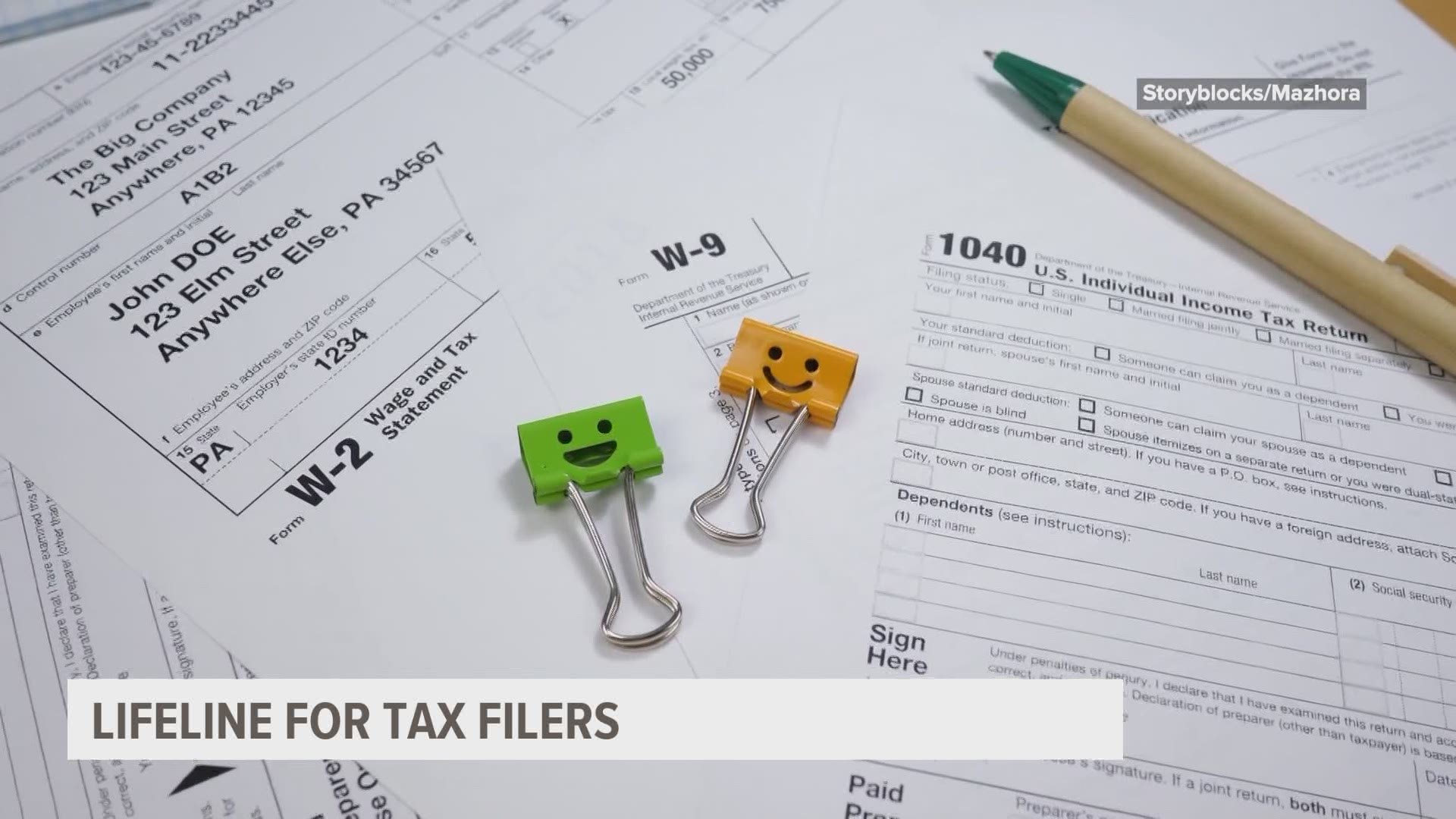DES MOINES, Iowa — Iowa's unemployment rate in April 2020 reached 11% due to COVID-19 turning the world upside down.
Many of those folks were first-time filers and didn't realize they'd have to pay taxes on unemployment benefits.
"We're seeing a lot of taxpayers that unfortunately did not withhold taxes when they received unemployment due to losing their job, unfortunately, to the pandemic," said Cameron McCarty, president of Vivid Tax Services.
Knowing this, lawmakers in Washington, D.C. included something called the "lookback" rule, giving low-income taxpayers a one-time break in accessing two of the most valuable tax credits.
"A lot of people were really setting themselves up, going, 'Oh, wow, I'm going to get nailed in taxes' or 'I'm gonna get less of a credit than I was used to,'" McCarty said. "Enter in that COVID-19 relief package, that was a saving grace and could be a saving grace for a lot of people, especially if they didn't pay taxes on their unemployment compensation."
So for this year only, people can apply either their 2019 or 2020 income levels to get the most out of the earned income tax credit and the child tax credit.
For some, this could mean to difference between owing the federal government money after filing or getting a tax refund.
"Take a look at your 2020 income versus your 2019 19 income to see which year you can receive a bigger tax break for your 2020 taxes," McCarty said.
Tax software or a qualified tax specialist can walk folks through how to apply for the credits.
Back in Iowa, state lawmakers are also looking to provide relief for taxpayers and businesses affected by the COVID-19 pandemic. That relief totals around $128 million.
The Iowa House passed their own COVID relief package already. The now Senate File 364 exempts pandemic-related grants and unemployment benefits from state income tax.
That bill unanimously passed and just needs the Senate's approval before landing on Gov. Kim Reynolds' desk.

